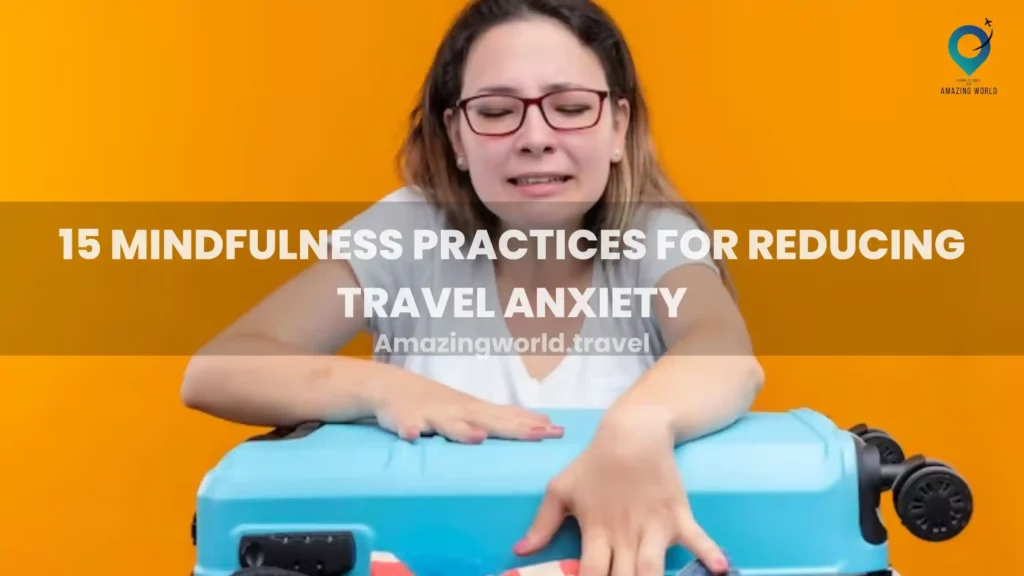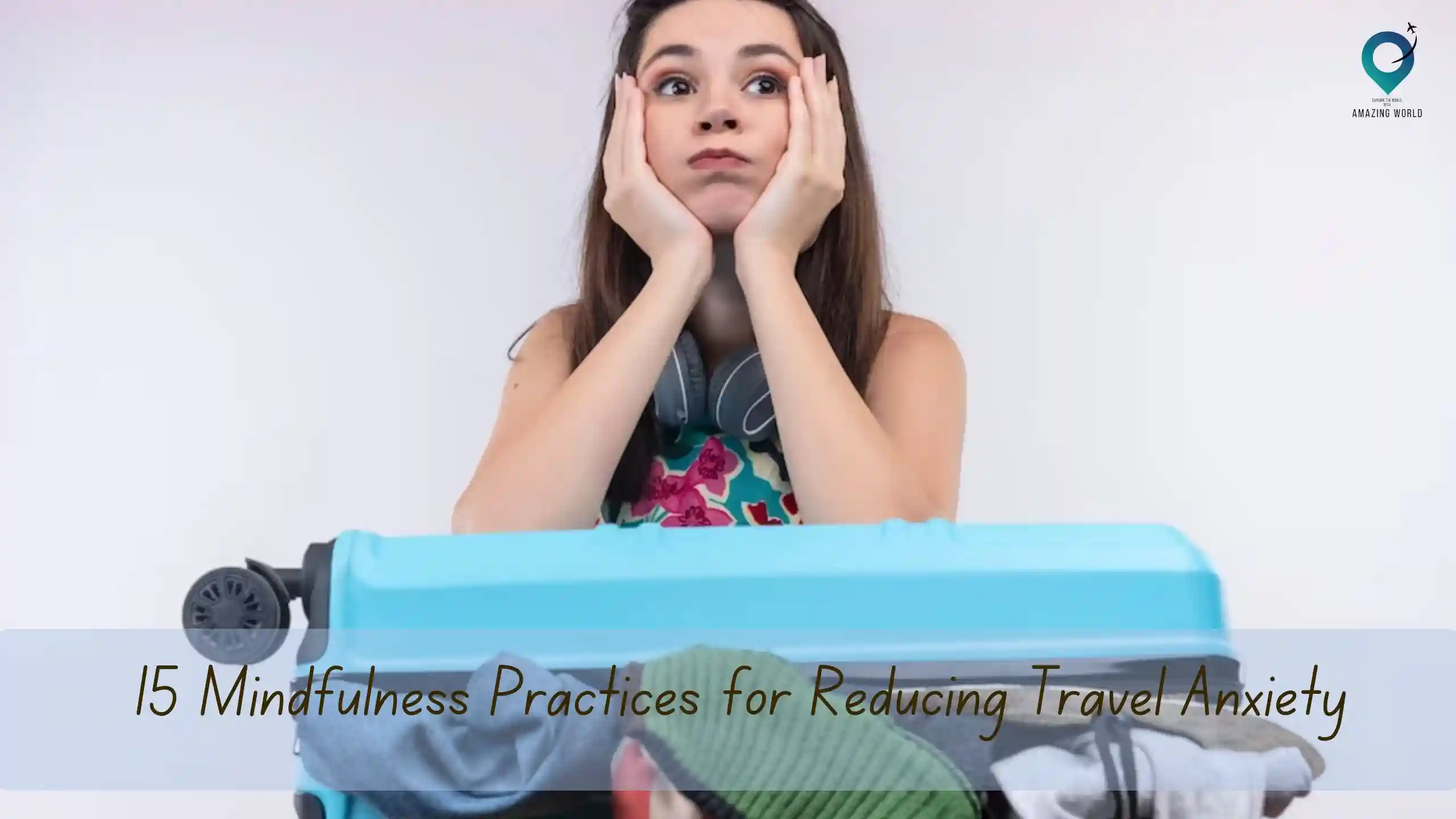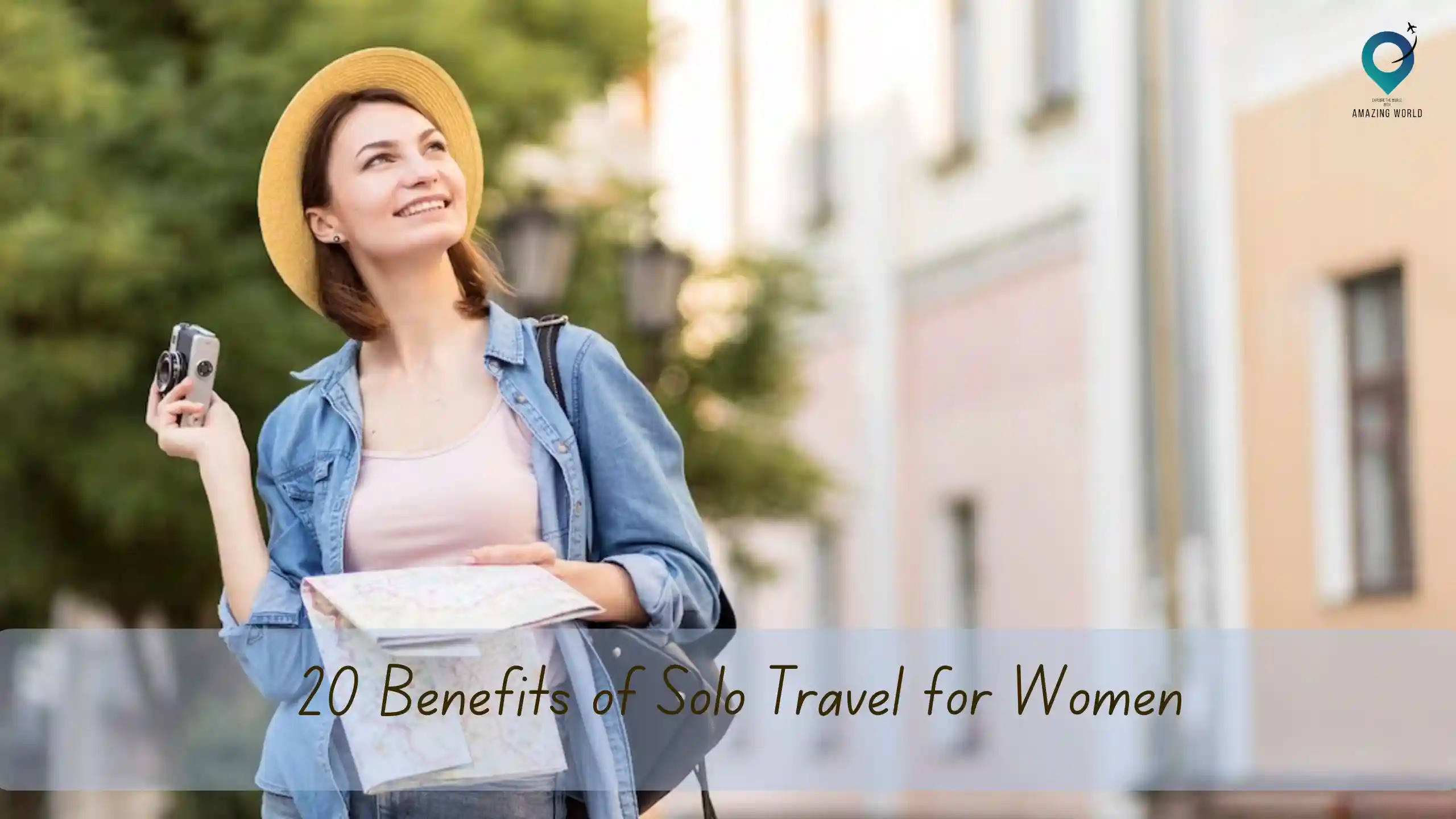15 Mindfulness Practices for Reducing Travel Anxiety
Table of Contents
Toggle
Traveling can be an exciting and enriching experience, but for some individuals, it can also bring about feelings of anxiety and stress. The uncertainty, unfamiliar environments, and disruptions to routines often associated with travel can trigger anxiety in many people.
Fortunately, there are effective ways to manage and reduce travel anxiety, and one such approach is through the practice of mindfulness. In this article, we will explore 15 mindfulness practices that can help individuals reduce travel anxiety and enhance their overall travel experience.
“If you are looking for the best hotel and flight deals for your next vacation, then we recommend booking your bundled flight and hotel through hotwire.com.“
Understanding Travel Anxiety
Before delving into mindfulness practices, it’s essential to understand what travel anxiety entails and what factors contribute to its occurrence. Travel anxiety is a type of anxiety characterized by feelings of unease, worry, or fear that arise before or during travel. It can manifest in various ways, such as fear of flying, fear of unfamiliar places, or fear of being away from home. The causes of travel anxiety can be diverse and may include fear of the unknown, concerns about safety, past negative experiences, or a lack of control over the travel process.
Benefits of Mindfulness for Travel Anxiety
Mindfulness is a powerful practice that involves being fully present and aware of the present moment without judgment. It can significantly benefit individuals experiencing travel anxiety by helping them cultivate a sense of calm, reducing stress levels, and increasing overall well-being. By practicing mindfulness, individuals can develop greater resilience and the ability to cope with the uncertainties and challenges that often come with travel.
Mindfulness Practices for Reducing Travel Anxiety
- Deep Breathing Exercises
- Deep breathing exercises, such as diaphragmatic breathing or box breathing, can help calm the nervous system and reduce anxiety symptoms. By focusing on slow, deep breaths, individuals can activate the body’s relaxation response and promote a sense of calmness.
- Grounding Techniques
- Grounding techniques involve redirecting attention to the present moment and physical sensations. For example, individuals can focus on the sensation of their feet on the ground or the weight of their body against a chair, which can help alleviate anxious thoughts and bring a sense of stability.
- Meditation and Visualization
- Meditation and visualization techniques can be powerful tools for reducing travel anxiety. Engaging in guided meditations or visualizing positive travel experiences can help individuals create a mental space of tranquility and foster a sense of confidence and relaxation.
- Practicing Gratitude
- Cultivating a practice of gratitude can shift the focus from worries and anxieties to appreciating the positive aspects of travel. Taking a moment each day to reflect on what one is grateful for can help reframe perspectives and promote a more positive mindset.
- Engaging the Senses
- Paying attention to the present moment through the senses can help anchor individuals in the here and now. By deliberately observing and appreciating the sights, sounds, smells, tastes, and textures of their surroundings, individuals can foster a greater sense of connection and reduce anxiety.
- Journaling
- Keeping a travel journal can provide an outlet for expressing emotions, reflecting on experiences, and processing anxious thoughts. Writing down fears and concerns before or during the journey can help individuals gain clarity and release tension.
- Mindful Walking
- Engaging in mindful walking can be a valuable practice for reducing travel anxiety. By bringing awareness to the sensations of walking—the feeling of the ground beneath the feet, the rhythm of the steps—individuals can center themselves and find a sense of calmness.
- Progressive Muscle Relaxation
- Progressive muscle relaxation involves tensing and then releasing different muscle groups in the body. This practice helps alleviate physical tension and promotes relaxation. By systematically tensing and relaxing each muscle group, individuals can achieve a state of deep relaxation and reduce anxiety.
- Self-Compassion
- Practicing self-compassion involves treating oneself with kindness and understanding. When experiencing travel anxiety, it’s essential to be patient and gentle with oneself. Engaging in self-care activities, practicing self-talk, and acknowledging one’s emotions can help foster self-compassion and reduce anxiety.
- Letting Go of Control
- Travel can bring about a loss of control due to unpredictable circumstances. Letting go of the need to control every aspect of the journey can alleviate anxiety. Embracing uncertainty and trusting in the process can lead to a more relaxed and enjoyable travel experience.
- Mindful Eating
- Paying attention to the act of eating and savoring each bite can bring a sense of mindfulness to mealtimes during travel. By fully engaging the senses and appreciating the flavors and textures of the food, individuals can enhance their dining experience and reduce stress.
- Creating a Travel Routine
- Establishing a travel routine can provide a sense of structure and familiarity, which can be comforting for individuals experiencing travel anxiety. Having consistent practices or rituals, such as a morning meditation or an evening relaxation routine, can create a sense of stability and ease anxiety.
- Setting Realistic Expectations
- Setting realistic expectations for travel can help manage anxiety. Understanding that not everything will go exactly as planned and that challenges may arise can prevent undue stress. Embracing flexibility and adaptability can lead to a more relaxed and enjoyable travel experience.
- Practicing Mindful Listening
- Engaging in mindful listening involves fully focusing on and being present in conversations or audio experiences. By actively listening and giving undivided attention to others or the sounds around them, individuals can foster meaningful connections and reduce anxious thoughts.
- Using Affirmations
- Affirmations are positive statements that individuals repeat to themselves to reinforce desired thoughts and beliefs. Using affirmations related to travel, such as “I am capable of navigating new experiences,” can help individuals overcome travel anxiety and build confidence.
Incorporating Mindfulness into Travel Preparations
It’s important to incorporate mindfulness into travel preparations to set the stage for a more relaxed and anxiety-free journey. Here are some tips:
- Plan ahead: Research and gather information about the destination, accommodations, transportation, and activities to reduce uncertainties.
- Pack mindfully: Take time to pack essential items and create a travel checklist to ensure nothing is forgotten. Packing mindfully can promote a sense of preparedness and alleviate last-minute stress.
- Practice self-care: Prioritize self-care activities before travel, such as exercise, sleep, and healthy eating. Taking care of physical and mental well-being can enhance resilience and reduce anxiety.
- Use visualization: Visualize positive travel experiences and imagine successfully managing any challenges that may arise. This practice can help create a positive mindset and build confidence.
Conclusion
Travel anxiety is a common experience for many individuals, but it doesn’t have to hinder the joy and adventure of exploring new places. By incorporating mindfulness practices into travel preparations and implementing techniques such as deep breathing exercises, grounding techniques, meditation, and visualization, individuals can reduce travel anxiety and enhance their overall travel experience. By cultivating a present-moment awareness and embracing self-compassion, individuals can navigate travel with greater ease and openness to new experiences.
How much did you like Our detailed 15 Mindfulness Practices for Reducing Travel Anxiety? Review Also, please share these Blogs with your friends on social media.
Related Article –
- Best & Safest Places for Solo Female
- 20 Must Need to know Safety Tips for solo female
- Best Adventure Activities for Solo Female Travelers
- 20 Reasons Why Women Travel Solo
Travel Anxiety FAQ
How long does it take for mindfulness practices to reduce travel anxiety?
The timeframe for experiencing the benefits of mindfulness practices can vary from person to person. However, with regular practice, individuals can begin to notice positive effects within a few weeks or even days. Consistency and patience are key.
Can mindfulness practices be used during a flight or other forms of transportation?
Absolutely! Mindfulness practices can be adapted to various travel situations. Deep breathing, grounding techniques, and visualization can be practiced discreetly during a flight or other forms of transportation to reduce anxiety and promote relaxation.
Can mindfulness help with jet lag?
While mindfulness practices cannot directly alleviate the symptoms of jet lag, they can help individuals manage the associated stress and anxiety. By fostering a sense of calmness and resilience, mindfulness practices can support overall well-being during travel, including recovering from jet lag.
Are there any specific mindfulness apps or resources recommended for travel anxiety?
There are several mindfulness apps and resources available that can assist with travel anxiety. Some popular options include Headspace, Calm, Insight Timer, and Stop, Breathe & Think. Exploring these resources can provide guided meditations and relaxation exercises specifically tailored to reducing anxiety during travel.
Can mindfulness practices benefit other aspects of travel besides anxiety?
Absolutely! Mindfulness practices can enhance various aspects of travel. They can improve the overall travel experience by increasing awareness, reducing stress, fostering gratitude, and promoting a greater sense of presence and enjoyment in the present moment.

Meet David Hoper, a passionate travel Blog writer with 7+ years of experience in travel content. Through his exemplary storytelling and engaging narratives, he shares his experiences and brings destinations to life. With a keen eye for detail and a love for exploration, he has cultivated a diverse portfolio of travel blogs that inspire and inform readers worldwide.








